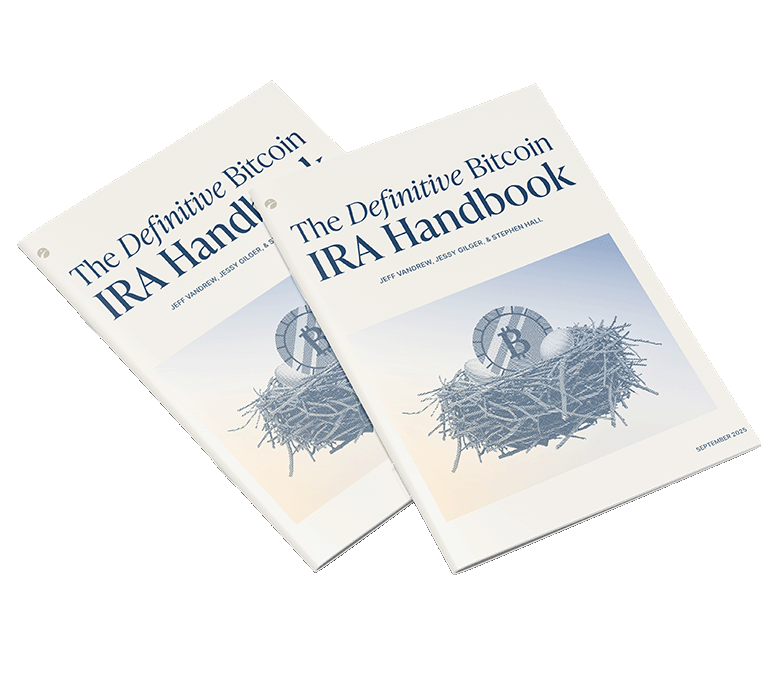
The definitive bitcoin IRA handbook


Many people early in their bitcoin journey end up temporarily distracted by altcoins. If this describes you, you may have accumulated an altcoin portfolio that you no longer want to hold long-term. You may want to dump those “cryptocurrencies” as fast as possible to accumulate more bitcoin, but you’re afraid of the large, up-front capital gains tax. A charitable remainder trust (CRUT) may be a solution to your problem.
A CRUT is a tax-exempt irrevocable trust that makes annual payments to the trust beneficiaries for a certain period before donating the leftovers at the end of the period to a designated charity.
To take advantage of a CRUT with altcoins, you contribute your altcoins to a trust before selling. The trust then sells the altcoins on a completely tax-free basis.
As trustee, you then reinvest the sale proceeds. Depending on the particulars of the trust and the legal opinion of your attorney with respect to the “jeopardizing investment rules” under the Internal Revenue Code, those proceeds may be eligible to be reinvested in bitcoin right away while still held in the trust, or may need to be first reinvested in more traditional stocks, bonds, and ETFs until distributed from the trust (at which point you can convert those funds to bitcoin).
The trust pays you each year for your lifetime from the reinvested proceeds (you can alternatively choose to have the payment made for the joint lives of you and your spouse, or a 20-year fixed period). This annual payment is set upon trust creation and is expressed as a percentage of the trust’s value at the beginning of each year.
When you (or you and your spouse) pass away, if anything is left in the trust, the balance passes to a charity of your choosing. You can change the charity at any time, so you are never locked in.
The tax benefits are huge:
You are also allowed to name yourself as trustee of the trust if you like.
Some people have also deployed CRUTs when liquidating bitcoin holdings for dollars in a lump sum, but this is beyond the scope of this article, and we would never recommend selling bitcoin as a strategy! That said, always be sure to consult with a trusted financial advisor on these questions.
The first step is to contact your estate planning or tax attorney in your state of residence to analyze tax benefits and draft the trust document. Unchained cannot draft a CRUT for you.
However, we can open an Unchained vault properly titled to your CRUT for any of its bitcoin investments, as well as an Unchained vault titled to you personally for the bitcoin you’ll be purchasing with your annual CRUT payment. Our trading desk is also available for reinvesting any dollar-denominated proceeds into bitcoin.
This article is provided for educational purposes only, and cannot be relied upon as tax or legal advice. Unchained makes no representations regarding the tax consequences of any structure described herein, and all such questions should be directed to an attorney or CPA of your choice.